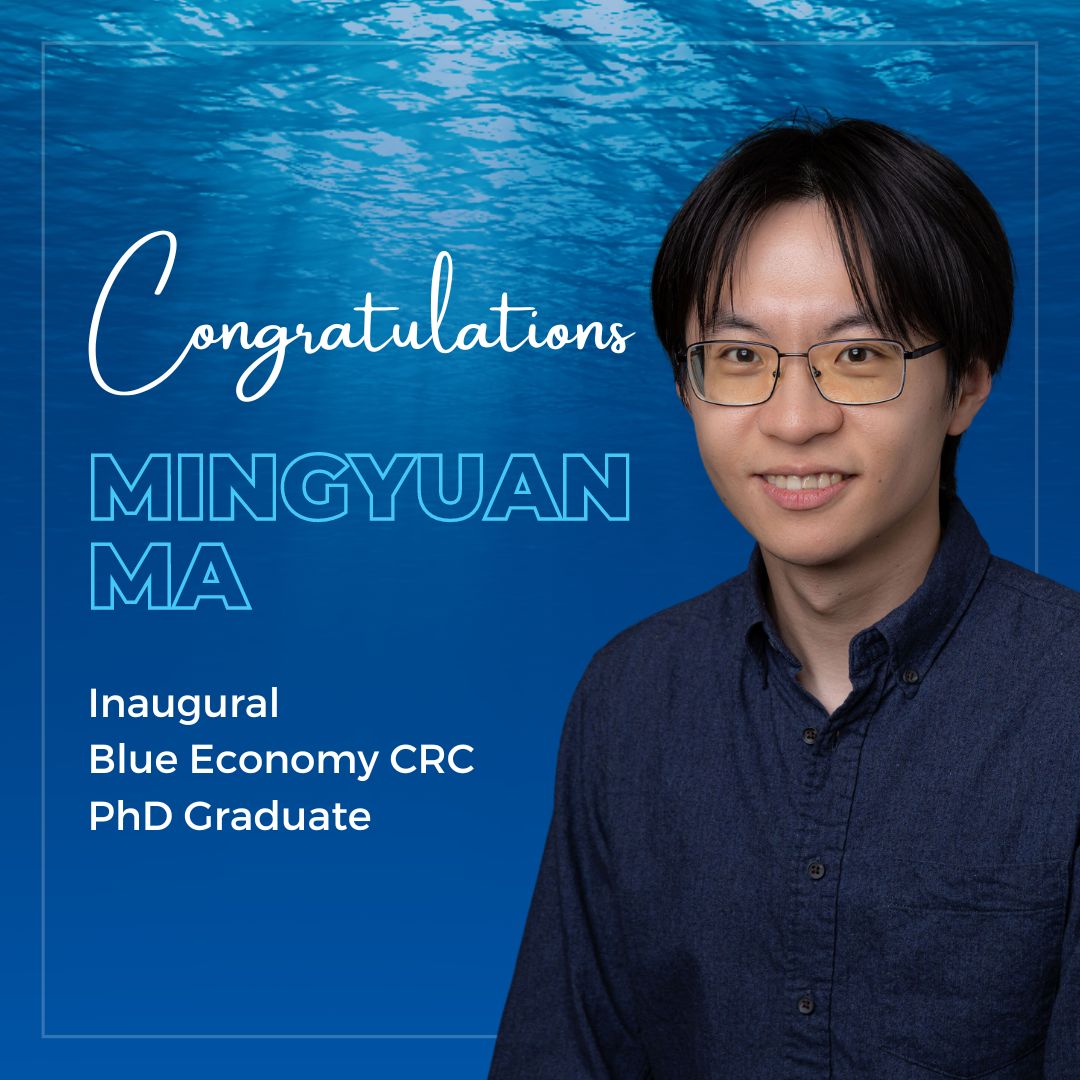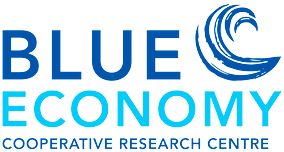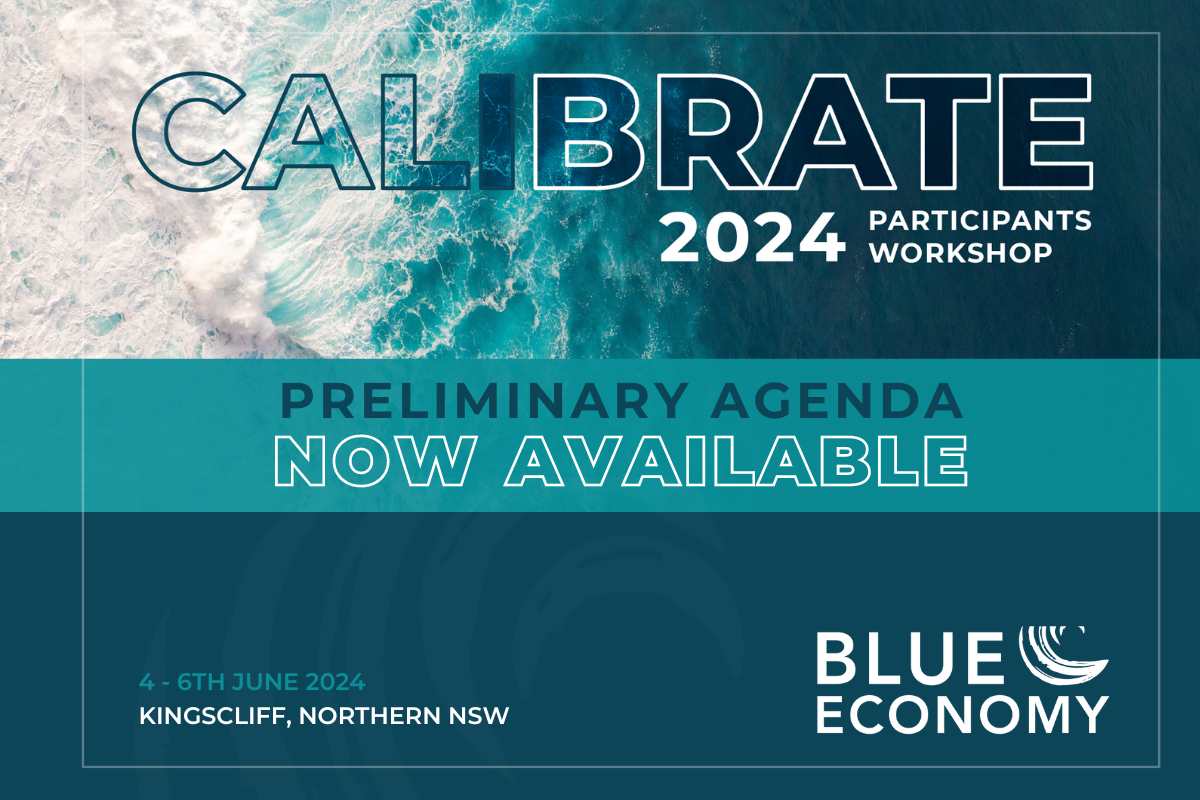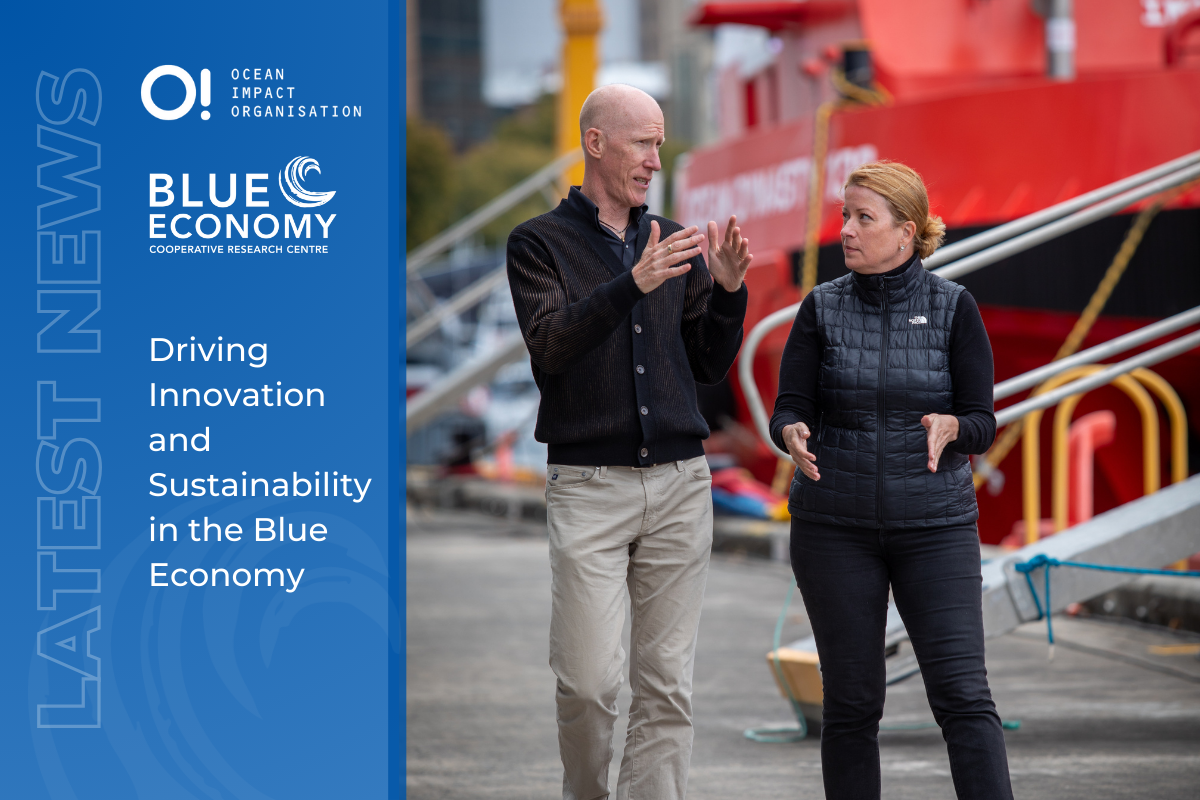 The Blue Economy CRC is pleased to announce our Inaugural PhD graduate, Mingyuan Ma from Griffith University.
The Blue Economy CRC is pleased to announce our Inaugural PhD graduate, Mingyuan Ma from Griffith University.
Mingyuan’s research investigated the hydroelastic interaction between ocean waves and open-net fish pens in order to design effective systems to operate in high-energy offshore environments with significant wave loads.
Offshore fish farming will become an inevitable trend for high productivity and low pollution in the future.
For deep-sea fish pens, there are a few technical challenges that need to be overcome which include:
- The feasibility of deep-sea fish pens due to the more complex sea conditions and
- Stronger waves, currents, and other environments loads will lead to more stringent requirements on the types, materials, and strengths of the fish pen structure.
Mingyuan’s research focused on the hydrodynamic analysis of fish pens and the identification of fish pen structures suitable for application in offshore areas along with the creation of a hydro-elastic analysis model for fish net pens.
Research Outcomes – the engineering application of offshore fish farming
Mingyuan’s studies provide scientific and technical contributions to the engineering application of offshore fish farming.
The theoretical implication of wave-pen interaction includes the introduction of shell-membrane theory and wave interference. The developed semi-analytical model provides an effective tool for engineers to predict the wave response of fish cages, and the research conclusions provide reference and experience in engineering design.
In future work, more complex hydrodynamic phenomena and marine aquaculture systems are expected to be explored.
Mingyaun’s research completed research aims to:
- Reduce the time and cost in future offshore pen designs.
- Identify structural safety risks to avoid personal injuries and property losses.
- Reduce the cost of construction and maintenance of the fish pen system.
- Optimise the living environment of fish through flow field analysis to improve production efficiency.
Mingyuan’s Supervisory team included Professor Hong Zhang, Griffith University, Professor Dong-Sheng Jeng, Griffith University and Lex Mulcahy, Pacific ESI.
“I would like to express my most heartfelt appreciation to my principal supervisor, Professor Hong Zhang. Thanks to her for introducing me to academia, and with her continuous encouragement and support, I was able to persevere in the long research journey. I am lucky and proud to have such an academically excellent, responsible and kind mentor.
Special and sincere thanks to Griffith University and Blue Economy CRC for giving me the opportunity to join a big family with other excellent scholars.
Also, I cannot begin to express my thanks to my beloved parents for their understanding and support for my doctoral study, and my friends for their company and care. The period with them is my happiest moment.”






